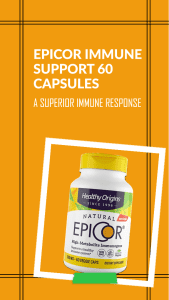
Share
Introduction
Taking care of your skin isn’t just about what you put on it—it’s also about what you put in your body. If you’re looking for an easy and natural way to boost your glow, let’s talk about fish oil.
Before you wrinkle your nose, give it a chance! Fish oil, which is full of omega-3 fatty acids like EPA and DHA, is known for helping your heart. But guess what? It’s also great for your skin. And science agrees!
Here at Optimal Health Bridge, we love sharing natural ways to help you feel and look your best. So, let’s dive into six science-backed reasons why fish oil may just become your skin’s new best friend.
What Is Fish Oil?
Fish oil is oil that comes from oily fish like salmon, mackerel, sardines, and anchovies. It’s rich in omega-3 fatty acids, including:
- EPA (Eicosapentaenoic Acid)
- DHA (Docosahexaenoic Acid)
Your body doesn’t make these fats on its own, so you need to get them from food or supplements. And no, snacks shaped like fish don’t count!
There are different types of fish oils, such as:
- Regular Fish Oil: High in EPA and DHA
- Cod Liver Oil: Has EPA, DHA, and vitamins A and D
- Krill Oil: Comes from tiny sea creatures and may be easier to absorb
Fish oil comes in different forms:
- Softgels (easy to swallow)
- Liquid (great to add to foods)
- Topical (used in creams and serums for direct skin care)
How Fish Oil Helps Your Skin
Your skin has a barrier that helps protect it from pollution, harmful bacteria, and dryness. Omega-3s help keep this barrier strong and healthy.
- EPA helps reduce redness and swelling.
- DHA supports the health of your skin cells.
- Omega-3 fatty acids help keep your skin hydrated and smooth.
Studies show fish oil can help with acne, dry skin, psoriasis, and even sun damage. It’s like a behind-the-scenes helper for your skin!
6 Science-Backed Reasons to Add Fish Oil to Your Skincare Routine
1. Moisturizes and Strengthens Your Skin
Omega-3s work like magic for your skin’s moisture. They help your skin hold in water, making it look soft and smooth. They can also help your skin’s natural balance stay in check.
- Reduces water loss from the skin
- Keeps your skin hydrated from the inside out
- Supports a healthy layer that protects your skin
2. Calms Inflammation and Redness
Red, itchy, or puffy skin? Fish oil may help. Omega-3s are known to calm inflammation and reduce redness, even after sun exposure.
- Helps with acne, eczema, and psoriasis
- Calms skin after treatments or sunburn
- Leaves your skin looking fresh and even-toned
3. Helps Fight Signs of Aging
Fish oil can be a smart way to keep your skin looking young. It helps prevent damage from harmful elements and supports your skin’s natural elasticity.
- Reduces fine lines and wrinkles
- Protects skin cells against stress and damage
- Helps your skin stay firm and flexible
4. Helps Protect Against Sun Damage
Fish oil isn't a sunscreen, but it can help your skin handle the sun better. Fish oil may reduce skin damage caused by UV rays.
- Lessens inflammation from sun exposure
- May lower the chances of sunburn
- Useful alongside sunscreen for extra support
5. Speeds Up Healing
If your skin gets irritated or damaged, fish oil can help it recover faster. It supports the building blocks your skin needs to fix itself.
- Helps skin heal from scrapes and dryness
- Reduces swelling around wounds
- Encourages new cell growth
6. Balances Oily Skin
It might sound odd, but fish oil can help reduce oily skin! It balances your body’s natural oil production, which can lead to fewer breakouts.
- Less shine in oily areas
- Helps prevent clogged pores
- Creates more balanced skin overall
How to Use Fish Oil for Healthier Skin
Supplements vs. Topical Use
| Method | Benefits | Things to Know |
|---|---|---|
| Oral Supplements | Helps skin and the rest of your body | Best when taken daily |
| Topical Use | Targets dry or flaky spots directly | Always do a patch test first |
| Both | Gives the most benefits | May cost more, but it's worth it |
How Much Should You Take?
- For general health: 250–500 mg of EPA + DHA per day
- For skin or other conditions: Up to 3,000 mg daily (ask your doctor first)
- If pregnant or breastfeeding: Talk to your healthcare provider
At Optimal Health Bridge, our Omega-3 products are pure, powerful, and easy to take—with no fishy burps!
10 Easy Ways to Add Fish Oil to Your Routine
- Take a fish oil softgel every day.
- Add liquid fish oil to your morning smoothie.
- Apply diluted fish oil to dry skin spots.
- Stir fish oil into salad dressings.
- Use creams or serums that have fish oil.
- Mix it into homemade face masks (avocado and fish oil, anyone?).
- Combine with other skin-friendly oils like evening primrose.
- Eat foods rich in omega-3s like salmon and chia seeds.
- Include it in your nighttime supplements.
- Look for skincare products with omega-3s on the label.
Want to learn more? Check out our blog series on Omega-3s to see how they support your heart, brain, joints, and more!
Final Thoughts
You made it to the end—nice work! Now you know how fish oil can help your skin stay healthy and glowing from the inside out. Whether you're fighting dryness, breakouts, or signs of aging, fish oil could be just what your skin needs.
At Optimal Health Bridge, we’re here to help you grow your glow naturally. Our Omega-3 supplements are made for real results—with great taste and no fishy side effects.
So go ahead, give your skin some love from the inside. We think you'll love the glow!
Want More Tips?
Visit our blog for more health and skincare tips, and browse our top-quality Omega-3 supplements made to support beauty, brain, and beyond.










